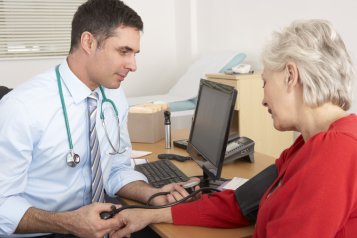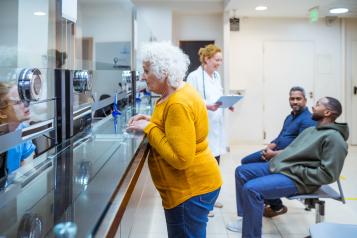How we’re collaborating with Imperial College London to raise awareness of local health inequalities

After a successful programme with Imperial College medical students last year, our collaborative relationship has continued to grow. Our recent workshop gave us the opportunity to share our work and feedback what we’re hearing from local communities to those who will go on to work as clinicians across the NHS.
The workshop
We began the workshop by introducing our work and the role of a local Healthwatch. We talked about our work responding to COVID-19, hearing from local people about their experiences accessing health services during the pandemic, and how we used the information to help service providers improve their services. We also talked about our role signposting information and facilitating conversations between scientists, clinicians, other community organisations, and local people.
Alongside this, we spoke about our work on digital health and engagement. We found that while digital tools can work well for some people, they can exclude others. Ensuring that changes to health services do not impact the accessibility of the service is important.
Facilitating communication between medical professionals and the community
As the independent champion for people who use health and social care services in Westminster and Kensington & Chelsea, we know how important it is to have open lines of communication between medical professionals and local patients, residents, and carers.
Regular and open communication can help to reduce health inequalities and improve health outcomes, as patients know how to use services, and health services understand what works for patients. At Healthwatch Central West London, we regularly facilitate these conversations, and drive contact between local people and health services.
An important channel for this dialogue are Patient Participation Groups (PPGs). Each GP practice has a PPG, and anyone over 16 years of age who is registered at the practice can become a member. PPGs listen to patients’ stories and views, explore ideas and suggestions on how to improve patients’ experiences in GP practices, and provide local people with the opportunity to discuss their experiences with GP practice staff to create an action plan for service improvements.
At our workshop, we were able to introduce the Imperial College London students to PPGs. Together we explored why PPGs exist, what they were set up to do, and how they can be best used to allow patients to share feedback and help improve services.
We also explored the challenges of PPGs. Are they representative of the local community? Who might not be reached in this way? What else can we do to ensure everyone can have their voice heard?
Continued collaboration
After a successful collaboration with Imperial College London last year, it has been a pleasure to continue our relationship and deliver this workshop.
The students we worked with were open and engaged, willing to ask questions and learn about our work. It’s important that the next generation of clinicians have a wider understanding about how local health and social care provision is structured. This includes understanding the role of organisations outside the NHS, like us at Healthwatch Central West London. Understanding how other organisations work alongside the NHS to improve health and care services is vitally important for anyone who delivers care.
We look forward to strengthening our relationship with Imperial College and hope to work closely with them in the future.


